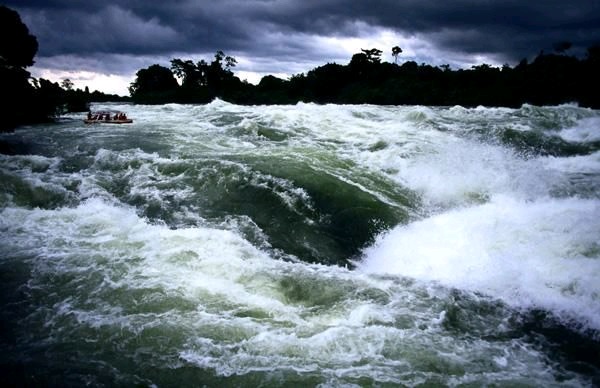
Kampala, Uganda | THE INDEPENDENT | The quality of the Nile waters has generally deteriorated because of population growth and urbanization, agricultural intensification and industrial development.
The new State of the Nile Basin Report 2020 released on Monday said localized high pollution is experienced mainly around urban centres.
The report compiled by the Nile Basin Initiative Secretariat based in Entebbe said there is considerable risk that fresh water downstream of major urban areas may become polluted and de facto unusable.
Launching the report, Rwanda’s Environment Minister Jeanne d’Arc Mujawamariya said countries in the Nile Basin need to periodically reflect and monitor some of the developments responsible for increasing pollution of the Nile.
She said rising water abstractions from the river, rapid land use change and heavy pollution have exerted increasing pressure on the Nile water resources and the ecosystems that support their continuous provision of clean water.
Other studies have shown that Nile pollutants are derived from sources such as industrial wastewater, oil pollution, municipal wastewater, agricultural drainage, and natural cyanotoxins also known as blue-green algae.
The blooming of cyanobacteria elicited by excess nutrients leads to the production of cyanotoxins which affect the health of fish and may poison them.
In Uganda, it is common to find trucks, cars, motorcycles parked in river streams for washing and yet those are known for spillage of oils into the water. Bush burning along the river coupled with cultivation within the river banks increases on pollution levels.
Presenting the report, Nile Basin Initiative’s Senior Water Resources Management specialist Dr. Michael Kizza said the report tries to present a case for countries to work together to innovate solutions to the water security challenges.
Despite its importance, the Nile is still heavily polluted by waste and rubbish poured directly into it as well as agricultural runoff and industrial waste with consequences for biodiversity especially fishing and human health.
The report projects imbalance between available water and growing water demand is likely to be substantial.
“Nevertheless, water savings are possible if losses in existing irrigation schemes can be reduced. This includes potential reduction of losses where the estimated direct evaporation losses are estimated from 100 to 250 mm per year.”
It calls on countries to explore rain water harvesting as one of the options related to water abstraction. “Rainwater represents a very substantial water resource that is currently underused. Specifically, the productivity of rainwater is low in rain-fed farming across the Nile Basin which covers 87% of arable land. It suggests large untapped water resources and agricultural potential” spreads part of the report.
Implications of Agricultural development for water and food security
The authors of the report said it is clear that water scarcity will constrain a large expansion of areas under full irrigation supplied by surface water from the Nile or its tributaries.
They observed that a very large share of the additional food produce required therefore needs to come from the use and improvements – regarding yield, total production, and water productivity in irrigated systems and large available arable lands in the basin and more importantly from improvements in the large rain-fed sector.
At a global level, water shortages are now affecting more than 3 billion people. FAO data has shown that the amount of fresh water available for each person has plunged by a fifth over two decades.
It is estimated that about 1.5 billion people are suffering severe water scarcity or even drought as a combination of climate breakdown, rising demand and poor management has made agriculture increasingly difficult across swathes of the globe.
Rain-fed agriculture represents 60% of global crop production, and 80% of land under cultivation with the rest benefiting from irrigation.
*****
URN
 The Independent Uganda: You get the Truth we Pay the Price
The Independent Uganda: You get the Truth we Pay the Price




Thanks for sharing such a good thought, post is fastidious, thats why i have redad it completely
I’m very pleased to find this web site. I wanted to thank you for your time just for this fantastic read!!
I definitely liked every little bit of it and i also have you saved to fav to
look at new information on your website.
I do not know if it’s just me or if perhaps everyone else experiencing problems with
your site. It appears as if some of the text in your
content are running off the screen. Can someone else please
provide feedback and let me know if this is happening to them too?
This could be a problem with my internet browser because I’ve had this happen before.
Thank you